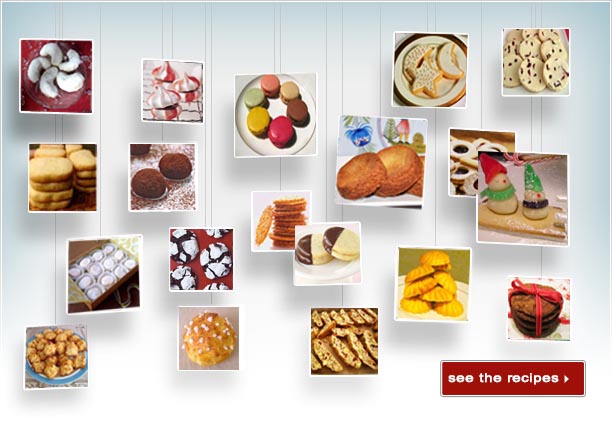W hat would the holiday be without their traditional small cookies? Whether you serve these cookies at holiday receptions, leave out for Santa, or send them as gifts to friends, one thing is certain: you want the best confections. These small delicacies have still many followers! Our gift to you is a selection of 25 of our favorite cookie recipes, one for each day from December 1 until Christmas Day.
Tips for successful cookies:
- Weigh the ingredients
In a cookie recipe like chocolate chips, there is not a lot of liquid. Adding one extra ounce of flour and the cookies would lose their softness, would not spread and harden. Hence the importance of weighing the dry ingredients.
- Spread the Facts
- Spreads
- Butter and margarine vs shortening and oil
- Vegetable or cooking oil
- Shortening and margarine
Margarine does not need to be softened before creaming or mixing with the sugar(s).
If butter or margarine are softened too much (melted or fingers go all the way through the stick when touched), they will not incorporate air and get fluffy-- when mixed (creamed) with the sugar. The water or liquid part of the butter or margarine will also be released and will make the cookie tough, greasy and affect spread.
- Salted or unsalted butter
- spices and flavorings
- final hint
You will find more information on http://www.exploratorium.edu/
- Right oven temperature
It is necessary to ensure that the temperature of the oven is accurate especially for baking cookies. An oven thermometer is recommended for measuring the temperature and adjust accordingly.
- Consistency of the dough
- Storing the cookies
When the cookies are baked and cooled, store them between sheets of baking or parchment paper in an airtight container at room temperature. In general, cookies do not need to be refrigerated, but if you plan to keep them longer than a few days, consider freezing. If you freeze them, make sure they are properly packaged. Thaw slowly to room temperature before serving.

